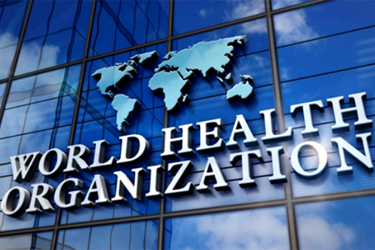AI And Pharmaceutical Development: WHO Calls For Ethical Framework, Good Governance
By Tim Sandle, Ph.D.

In March 2024, the World Health Organization (WHO) released a discussion document titled Benefits and risks of using artificial intelligence for pharmaceutical development and delivery.1 The document captures the considerable potential that AI holds for pharmaceutical development and medicine delivery. While AI holds great promise, especially in areas like precision medicine, there are risks and ethical challenges. These challenges not only involve pharmaceutical companies; they also cascade through societies, health systems, and individuals. The WHO document provides a working framework for the ethical aspects and the importance of good governance.
In many parts of the pharmaceutical sector, AI is already in use, especially for pharmaceutical development. As a future state, it is conceivable that every pharmaceutical product produced will involve an aspect of AI.
First: An Overview Of AI Usage In Bio/Pharma (If You Aren’t Already Using It)
AI has been integrated as an effective assistant among many drug discovery and repurposing researchers, enabling scientists to discover novel molecules and identify secondary or tertiary use cases for existing drugs, often faster and more cost-effectively than before.2 In the middle, AI can aid the rapid processing and can draw new insights from the data analytics required to better understand the relationship between raw material variability and process performance during manufacturing to help ensure consistent and predictable biomanufacturing performance. At the other end of the business model, forms of AI have facilitated the implementation of the U.S. Drug Supply Chain Security Act (DSCSA), which describes the steps to build an interoperable electronic system to identify and trace certain prescription drugs as they are distributed.3
Of these innovations, it is in drug development and clinical trials that AI holds the greatest value: improving medications, finding new medications for existing conditions, and developing new medications for once incurable rare diseases. A common AI form in drug development uses algorithms based on two neural networks. These networks are akin to a teacher and a student. Here, the teacher network understands the syntax and linguistic rules required to decipher the chemical structures of millions of known biologically active molecules. The student learns over time and becomes better at proposing new molecules that could form the basis of new medicines.4 While powerful, many algorithms make inferences and decisions that are not fully understood, even by their developers.
Ethical Issues Identified By WHO
The WHO document follows on from an earlier discussion paper issued in 2021; in the new document the U.N. agency raises a concern that AI technologies, if not placed under an ethical governance structure, could “dehumanize care, undermine the autonomy and independence of older persons, and pose significant risks to patient privacy.”5
Bias
AI is affected by bias, as is any system developed by humans. As indicated by the World Economic Forum, existing human bias is often transferred to machines, and we should not think of technologies like AI as neutral; they are only as good or bad as the people who develop them.6 The challenge is to overcome inherent biases as far as possible. Bias is also apparent in many clinical trials, and it often results in trials not representing all potential patient populations according to race, ethnicity, gender, age, and other characteristics.7
The WHO document puts forward that to ensure universal healthcare, ethical frameworks need to be developed to minimize the risk of bias in AI used for pharmaceutical development. The report highlights three areas that require particular attention:
- Bias in the data sets used to train AI technologies (such as the under-sampling of people with irregular or limited access to healthcare)
- Bias related to those who develop AI technologies
- Bias on the part of those who deploy of the technology (contextual bias)
Patient Safety
Patient safety can be endangered if algorithms for drug development are not tested for potential errors. As an example, if the risk of false-positive or false-negative recommendations has not been robustly assessed, this could lead to patient harm.
Bioterrorism
Just as AI can screen millions of chemical compounds to develop new medicines, the same technology can be used to screen these compounds to develop new forms of chemical and biological weapons. The WHO document recommends that governments have systems of control in place to prevent this from happening and seek international agreements to enforce those systems.
Transparency
While it is unlikely that all biases can be eliminated from AI, understanding how an AI system was developed and by whom allows any apparent weaknesses to be fed back and for improvements to be sought. For this feedback loop to work, WHO recommends full transparency throughout the AI development cycle.
Together with transparency, there needs to be responsibility and accountability on the part of the facility that developed and is using AI.
Data Protection
In addressing data protection, the 2024 WHO document puts forward the concept that data protection laws must be based on “rights-based approaches” in terms of individual rights and obligations for data controllers. The most important concept is that people have the right not to be subject to decisions guided solely by automated processes. This means any decision reached through AI must be verified by a human.
In addition, the document recommends that each nation implement regulations for the collection, processing, analysis, transfer, and use of health data. This will require, where it is not already in place, a complex legal process extending to trade agreements, intellectual property (IP) rules for the ownership of data, and updates to competition laws.
Who Owns The Data?
One of the ethical threads that requires unraveling is data ownership. If a drug company runs a clinical trial using one of its proprietary medicines and collects data from patients who have enlisted in the trial, is the data drawn from samples the sole property of the pharmaceutical firm, the patient, or both? However this is untangled, WHO’s proposed framework is for free, informed consent to the use of data and the creation of a secure national platform for the collection and processing of all health data.
The issue of data ownership is connected to the necessity of informed consent. Where patient data is collected and used, the patient must have full knowledge that this is taking place and the use to which the data will be put.
Recommendations Related To Ethical Issues
The WHO document makes many recommendations for strengthening AI so that health-related outcomes are of benefit to all people. Three of the most important recommendations are:
- Algorithms must be tested rigorously in the settings in which the technology will be used.
- There must be internationally agreed standards of safety and efficacy.
- Testing needs to include clear assumptions, operational protocols, data properties, and output decisions.
Governance Issues Identified By WHO
The WHO document considers the governance of AI, noting that, currently, many pharmaceutical firms will have governance structures in place and many governments have set out standards that firms must abide by. The WHO document contends that a global governance framework will be required given the scale and acceleration of the use of AI and its considerable potential impact on the health of billions of people.
As part of the governance framework, WHO calls for greater opportunities for data sharing and for the insights and benefits of AI to be shared globally. The report notes how data-sharing platforms are often in place for the benefit of the pharmaceutical industry, but they are often not available to other entities, such as developing nations and not-for-profit developers. Greater access to the insights from AI, WHO argues, will help to address many of the unmet health needs throughout the world’s population.
The Future State
The WHO document appears to be laying the basis for a set of principles, similar in one sense to the Universal Declaration of Human Rights that could be adopted by each U.N. member nation. Currently, no specific ethical principles for the use of AI for health have been proposed for adoption worldwide. This WHO document argues such a set of principles is needed.
References
- WHO. Benefits and risks of using artificial intelligence for pharmaceutical development and delivery, World Health Organization, Digital Health and Innovation and Health Product Policy and Standards, 2024: https://www.who.int/publications/i/item/9789240088108
- Savage N. Tapping into the drug discovery potential of AI. Nature, 2021: https://www.nature.com/articles/d43747-021-00045-7
- Gao Y, Gao H, Xiao H, Yao F. Vaccine supply chain coordination using blockchain and artificial intelligence technologies. Comput Industr Eng. 2023;175:108885
- Putin E, Asadulaev A, Ivanenkov Y, Aladinskiy V, Sanchez-Lengeling B, Aspuru-Guzik A, Zhavoronkov A. Reinforced Adversarial Neural Computer for de Novo Molecular Design. J Chem Inf Model. 2018; 58(6):1194-1204
- WHO. Ethics and governance of artificial intelligence for health, World Health Organization, Health Ethics & Governance, 2021: https://www.who.int/publications/i/item/9789240029200
- Omowole, A. Research shows AI is often biased. Here's how to make algorithms work for all of us, World Economic Forum, 2021: https://www.weforum.org/agenda/2021/07/ai-machine-learning-bias-discrimination/
- Artificial intelligence for public good drug discovery: recommendations for policy development. Paris: Global Partnership on Artificial Intelligence; 2021 https://gpai.ai/projects/ai-and-pandemic-response/public-domain-drug-discovery/ai-for-public-domain-drug-discovery
About The Author:
 Tim Sandle, Ph.D., is a pharmaceutical professional with wide experience in microbiology and quality assurance. He is the author of more than 30 books relating to pharmaceuticals, healthcare, and life sciences, as well as over 170 peer-reviewed papers and some 500 technical articles. Sandle has presented at over 200 events and he currently works at Bio Products Laboratory Ltd. (BPL), and he is a visiting professor at the University of Manchester and University College London, as well as a consultant to the pharmaceutical industry. Visit his microbiology website at https://www.pharmamicroresources.com.
Tim Sandle, Ph.D., is a pharmaceutical professional with wide experience in microbiology and quality assurance. He is the author of more than 30 books relating to pharmaceuticals, healthcare, and life sciences, as well as over 170 peer-reviewed papers and some 500 technical articles. Sandle has presented at over 200 events and he currently works at Bio Products Laboratory Ltd. (BPL), and he is a visiting professor at the University of Manchester and University College London, as well as a consultant to the pharmaceutical industry. Visit his microbiology website at https://www.pharmamicroresources.com.
